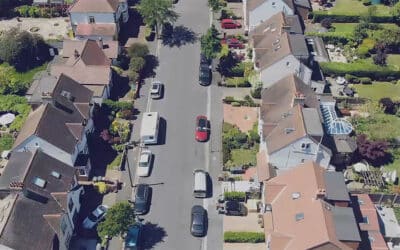The Court of Appeal issued in mid-May 2018 an important Judgment in the case of Dreamvar. This provides that Solicitors representing a fraudulent party acting for a vender of a property should share some responsibility along with those representing the duped buyers for any resulting losses. The Court of Appeal has partially upheld the appeal in Dreamvar from Solicitors of the buyer who had transferred thousands of pounds to fraudsters posing as property owners. The Court ordered both firms involved, Mishcon de Reya and Mary Monson Solicitors Ltd (MMS) should make a financial contribution. The case sets an important precedent on liability for recompensing parties who are duped when buying properties that are not owned by the people claiming to be sellers. It will have a significant impact, it is suggested, both in relation to professional negligence work and the insurance obligations of professional firms.
The facts in the case are that the real Mr Haeems owned a property at Old Manor Yard in London. An imposter purported to be the real Mr Haeems and (noticing the property was empty) obtained a driving licence and TV licence in the name of Mr Haeems. He had these documents certified as true copies by a solicitor. The certified documents recorded the address of Mr Haeems (the imposter) at an address in Catford. The imposter then provided these certified copy documents to MMS and instructed them to act in the sale of the property at Old Manor Yard.
Reputable selling agents were instructed to market the house at Old Manor Yard. Their instructions were that a quick sale was needed as Mr Haeems (the imposter) was about to be divorced.
The principal of Dreamvar viewed the house and made an offer followed by a counter offer which was accepted. Dreamvar was content to move quickly and forgo the usual pre-contract searches. Mishcon were instructed to act on the purchase as Dreamvar was an existing client. Contracts were exchanged and the completion occurred quickly. The completion monies amounting to £1.1m were paid by Mishcon to MMS and the registration formalities commenced with HMLR.
Prior to registration, HMLR became suspicious. They wished to undertake a check of the identity documents obtained by MMS before registration would be completed. HMLR had discovered a discrepancy between the real address, (the house in Old Manor Yard in London) and the Catford address. They could not link the real Mr Haeems to the address in Catford. Contact was then made with the real Mr Haeems who disclaimed all knowledge of the transaction. By this time the completion monies had been paid by MMS to another firm of solicitors and they had disappeared into other bank accounts in China.
The question in this case is who should then compensate the duped buyers? Should it be MMS who had failed (arguably) to acquire sufficient identity documentation or Mishcon who, on the face of it, as acting for the potential buyer, had also been duped and who had (arguably) done little wrong?
The Court at first instance held that it should be Mishcon who were liable. That decision was considered to be unexpected and quite a harsh decision against Mishcon given that they themselves objectively had done nothing wrong and importantly they were not really in a position to avoid any liability by carrying out their own check of the fraudster's identity documents. They would not have seen them during the course of a normal transaction. They were not the party directly deceived by the fraudster.
The matter has now proceeded to the Court of Appeal who ruled in mid-May that it should be both Mishcon and MMS who should jointly compensate the duped buyer with Mishcon having a further claim against MMS for a contribution. This is probably a decision which is unlikely to completely satisfy either side (particularly the lack of guidance to practitioners) and a further appeal to the Supreme Court later this year remains possible.
This case will have serious consequences for solicitors acting in conveyancing transactions, professional negligence work and any advisers who may be required to pay a premium for indemnity insurance.
If you require any further details relating to the Judgment, please contact us on 01245 493939
This is not legal advice; it is intended to provide information of general interest about current legal issues.



